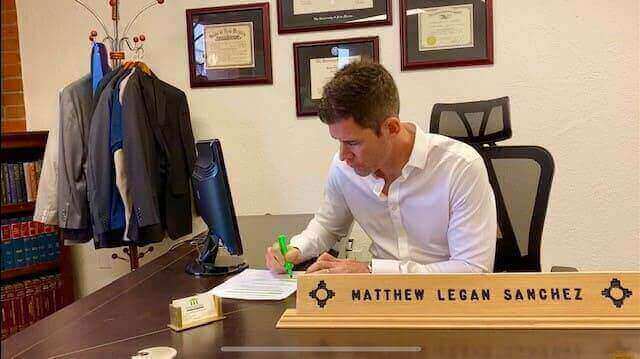
Two years have passed since New Mexico’s expungement law was updated. The updated law was intended to clear specific felonies and misdemeanors from a person’s criminal record. However, certain requirements must be met before the expungement is granted.
Discontent with NM’s expungement law is growing. This discontent involves several factors:
- Some NM judges refuse to follow the law;
- Some requirements make the law difficult to access; and
- Unclear language in the law gives judges too much power to deny requests.
Let’s examine some of the issues with New Mexico’s updated expungement law.
WHAT GOOD IS AN EXPUNGEMENT LAW THAT ISN’T BEING FOLLOWED?
The legislative intent of the updated expungement statute is clear. For instance, the law was updated to enable eligible New Mexicans to clear their record. In doing so, the law’s intent is to increase job opportunities and housing options for people that are being held back by an old arrest record. In other words, a clean criminal record can benefit New Mexicans.
Unfortunately, some judges across New Mexico refuse to follow the updated law. Specifically, some NM judges do not believe in the updated law. Similarly, some judges are taking the position that the updated law is “not my law.”
DOES NEW MEXICO’S EXPUNGMENT STATUTES HAVE TOO MANY REQUIREMENTS?
Let’s examine some of the expungement requirements. In particular, let’s examine the requirements for erasing a criminal conviction. A person convicted of a crime must meet the following requirements:
- The conviction cannot relate to: (1) An offense committed against a child; (2) An offense causing great bodily harm or death; (3) A sex offense; (4) Embezzlement; or (5) DWI.
- No pending criminal charges;
- No criminal convictions for a period that depends on the severity of the offense; and
- All fines, fees, and restitution have been fulfilled.
If these eligibility requirements are met, a person must:
- File a Petition for Expungement;
- Provide notice of the Petition to: (1) District Attorney; (2) Department of Public Safety; and (3) Law Enforcement Agency responsible for arrest;
- File documents showing that eligibility has been met; and
- Obtain and file NM & FBI Arrest Record.
PROBLEMS WITH EXPUNGEMENT REQUIREMENTS
Several requirements make the expungement process unnecessarily difficult. For example, the requirement to serve notice on three separate agencies creates an unnecessary burden, including:
- Unnecessary cost; and
- Potential for three separate agencies to file an objection. Accordingly, three different agencies can file an objection to a legitimate request for expungement.
WHY ARE CRIMINAL JUDGES COVERING CIVIL HEARINGS?
Expungements are civil in nature. Nevertheless, when an objection is filed by one of the three agencies above, a criminal judge may handle the objection hearing. Because of this fact, a criminal judge ultimately decides if the expungement is granted. Criminal judges covering civil hearings creates several potential problems, including:
- All judges are not created equally;
- Some criminal judges worked for one of the three agencies outline above; and
- Some judges lean towards the state when interpreting NM law.
Ultimately, this is problematic because the expungement law was created to benefit people living in New Mexico. Unfortunately, some criminal judges are pro-state and tend to lean towards one of the agencies above.
THE ASSIGNED JUDGE DECIDES IF JUSTICE IS SERVED
NM’s expungement statute gives judges the power to decide “. . . whether justice is served by an order to expunge.” This means that the assigned judge can ultimately deny the request based on the interests of justice.
The assigned judge ultimately defines and decides if justice will be served. This becomes problematic when the expungement case is either assigned or re-assigned to a criminal judge. This becomes especially problematic when the expungement case is assigned or re-assigned to a criminal judge that has a history of favoring the state.
A judge that favors the state is like a referee that favors one team. Consequently, the assigned judge can substantially change a case’s outcome. In other words, a legitimate request for expungement may be denied by a potentially biased judge.
Here’s a question to consider: Is justice served when a criminal judge decides if the expungement is granted? Also, is justice served when a former Assistant District Attorney decides if the expungement is granted?
SOMETIMES THE COURT OF APPEALS IS NEEDED
As we have seen, the updated expungement law is relatively new. The law was updated two years ago — December of 2019. A few months later, COVID hit New Mexico. Unfortunately, COVID has caused long delays to the court system. Because of this fact, some requests for expungement have sat for months – or even years – after an objection is filed. These long delays have created delays in orders being granted or denied. In turn, the delays have caused delays to the appeal process.
New Mexico laws are created by the NM legislature. New laws do not cover every potential issue. As such, there are gray areas with laws that are clarified through the appeal process. For instance, a judge’s ability to decide “. . . whether justice is served by an order to expunge” is unclear and needs to be clarified by the NM Court of Appeals.
As the law stands, NM judges have too much power to determine if the expungement is denied. As such, judges that “don’t believe in the law” have the power to deny a legitimate request based on “justice.”
Moving forward, it will be interesting to see if the legislature updates the already updated expungement law. Additionally, case law is needed to clarify some of the blurry issues within the expungement law.







